As cloud computing continues to reshape the business landscape, IT professionals must stay ahead of evolving technologies and security concerns. One of the most sought-after certifications in this realm is CompTIA Cloud+ which covers the essential cloud infrastructure and security skills that are crucial for managing and optimizing cloud environments. From virtualization to implementing cloud security best practices, this certification provides a comprehensive understanding of the concepts needed to navigate the complexities of modern cloud architecture.
Virtualization: The Foundation of Cloud Computing
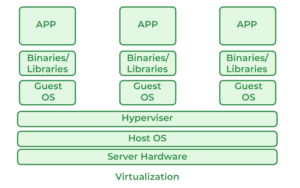
Virtualization is the technology that enables cloud computing. By allowing multiple virtual machines (VMs) to run on a single physical server, virtualization maximizes the use of available resources, improving efficiency and scalability. Virtualization abstracts the hardware from the operating system, allowing multiple systems to run on the same hardware, making it the backbone of cloud computing infrastructure.
For IT professionals aiming to understand virtualization thoroughly, Cloud+ offers in-depth knowledge of how virtualization technologies work, focusing on:
- Resource allocation
- Storage management
- Network virtualization
- Security Protocols
The ability to efficiently manage these components is critical for ensuring smooth operations within any cloud environment.
Benefits of Virtualization in Cloud Computing
| Benefits of Virtualization | Description |
| Resource Optimization | Efficiently allocates server resources |
| Scalability | Easily scale resources as needed |
| Cost Reduction | Reduces hardware costs |
| Disaster Recovery | Quick recovery through VM backups |
Cloud Security Best Practices
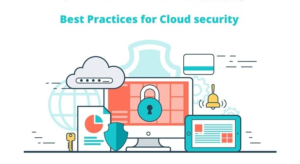
With the widespread adoption of cloud services, security has become a significant concern for organizations. Whether it’s public, private, or hybrid clouds, ensuring the protection of data and infrastructure is paramount. The CompTIA Cloud+ certification equips IT professionals with the knowledge needed to implement cloud security best practices, such as data encryption, access control, and network security.
Here are some critical cloud security best practices that every IT professional should follow:
- Data Encryption: Encrypt sensitive data both at rest and in transit to ensure confidentiality and prevent unauthorized access.
- Access Management: Utilize identity and access management (IAM) solutions to restrict access to sensitive resources, ensuring only authorized personnel have access.
- Regular Audits: Conduct regular audits to identify security gaps in the system. This allows for the timely remediation of vulnerabilities.
- Data Backup and Recovery: Implement an effective backup and recovery strategy to mitigate data loss in case of security breaches or system failures.
Cloud Security Best Practices and Their Importance
| Practice | Importance |
| Data Encryption | Ensures confidentiality and data protection |
| Access Management | Prevents unauthorized access |
| Regular Security Audits | Helps in identifying vulnerabilities early |
| Data Backup and Recovery | Reduces data loss in case of security incidents |
Bridging the Gap Between Cloud and Cybersecurity
In today’s cloud-centric IT environment, having a solid understanding of cybersecurity is just as important as cloud management skills. CompTIA CYSA+ Certification Training focuses on cybersecurity analysis, providing IT professionals with the tools and techniques to identify and mitigate potential threats in cloud environments. As cyber threats continue to evolve, professionals must be well-versed in cloud security protocols, vulnerability assessments, and incident response.

One of the biggest challenges organizations face is protecting their cloud infrastructure from cyber-attacks. By integrating cybersecurity knowledge into cloud infrastructure management, Cloud+ certified professionals can safeguard systems from both external and internal threats.
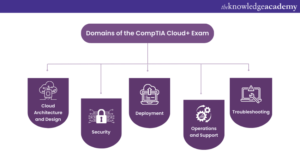
Concepts in CompTIA Cloud+ and CYSA+ Certification
| Certification | Concepts | Relevance to Cloud Security |
| CompTIA Cloud+ | Virtualization, Resource Management | Optimizing and securing cloud resources |
| CySA+ | Threat Detection, Incident Response | Identifying and responding to cloud-based cyber threats |
| Cloud+ & CySA+ | Network Security, Identity Management | Protecting sensitive data, ensuring secure cloud infrastructure |
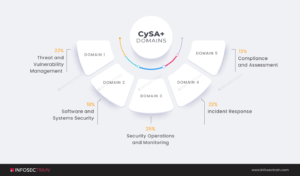
Cloud Security Incident Response
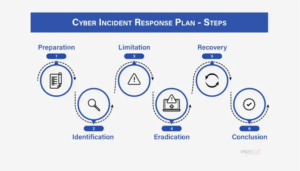
When a security incident occurs, a quick and effective response is critical. Cloud+ teaches best practices for incident response in cloud environments, including how to contain breaches, identify compromised assets, and restore systems to normal operation.
Steps in cloud security incident response include:
- Detection: Use monitoring tools to detect suspicious activity.
- Eradication: Remove the root cause of the security breach.
- Recovery: Restore data and services from secure backups.
- Post-Incident Analysis: Review the incident to improve future response strategies.
CompTIA CYSA+ Certification Training reinforces these principles, helping professionals sharpen their skills in analysing security incidents and implementing response protocols.
Conclusion
Mastering cloud infrastructure and security is no longer optional, it’s a necessity. Whether through virtualization or advanced security protocols, Cloud+ offers the essential knowledge needed to succeed in today’s cloud-driven world. Combined with the threat analysis skills from CYSA+ Certification, IT professionals will be well-prepared to manage and secure complex cloud environments.



